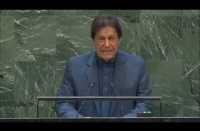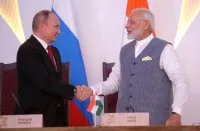Iran’s semi-official (with an emphasis on the ‘official’ part) Fars News has published a report denying yesterday’s statement by Turkey’s Interior Minister Süleyman Soylu who revealed that Turkey and Iran had jointly commenced an anti-terror operation against the PKK. While an angry or dismissive denial from a major Iranian figure would speak to a deterioration in Turkey-Iran relations, the “denial” published in the Fars piece demonstrates two separate but equally important phenomena. First of all, Iranian semi-official media is becoming increasingly close to expressing Turkey’s long standing position of opposition to PKK terrorism and secondly, Iran’s internal political infighting has prohibited Tehran from issuing a fully official and coherent statement regarding anti-terror operations against the PKK.
The Fars report cited an unnamed “informed source at the Chiefs of Staff of the Iranian Armed Forces” in order to claim that no Iranian military personnel had participated in Turkey’s anti-PKK operation. Then however, Fars’s unnamed sources is quoted as saying:
“The Armed Forces of the Islamic Republic of Iran will severely counter any group that intends to create insecurity in our country”.
Thus, Fars is presenting a narrative in which it is claimed that:
1. Turkey conducted an anti-PKK operation on its eastern border (something that Turkey of course admits)
2. Iran did not participate in the operation contrary to Turkey’s official statement
3. Iran tacitly supports Turkey’s move as the article’s main source states that Iran is always ready to respond to terror groups related to or similar to the PKK.
The remainder of the article not only goes on to accurately quote the figure of 40,000 as the number of innocent lives taken by the PKK in its war against the Turkish people (notably, many western outlets refuse to acknowledge this figure), but Fars also acknowledges high levels of cooperation against terrorism between Turkey and Iran. Relevant sections of the article relating to Turkey-Iran cooperation are reproduced below:
“Iran has had its own struggle with the PKK’s Iranian offshoot, the so-called Kurdistan Free Life Party (PJAK), which has waged several terrorist attacks in western Iran over the past years.
The terror group carries out attacks in parts of Iran’s West Azarbaijan province which borders Iraq, Turkey, and Armenia.
Two weeks ago, high-ranking Iranian and Turkish officials in a meeting in Ankara underlined that continued cooperation between the two countries in war on terrorism in the region is a necessity.
The meeting was held between Iranian Deputy Interior Minister for Security and Law Enforcement Affairs Hossein Zolfaqari and Turkish Interior Minister Suleyman Soylu on Monday March 04.
During the meeting the two officials conferred on the recent developments in Iraq and Syria as well as the situation of refugees and the measures adopted by the trans-regional countries, emphasizing the need for continued cooperation in fighting terrorist groups and organized crimes and establishment of security and tranquility in the region.
Soylu, for his part, underscored as highly vital cooperation between Tehran and Ankara to resolve the problems and prevent security incidents in the region and the world.
In a relevant development last year, Iranian President Hassan Rouhani and his Turkish counterpart Recep Tayyip Erdogan Erdogan in a meeting in New York City called for joint efforts to combat terrorism in the world and the region.
During the meeting on the sidelines of the UN General Assembly’s annual session in New York, the Iranian and Turkish presidents explored avenues for broadening of mutual cooperation in fighting terrorist groups.
The Iranian president pointed to the importance of Iran-Turkey-Russia cooperation on Syria, and said that Iran was fully prepared to help resolve the Syrian crisis, specially in Idlib, within the framework of tripartite cooperation with the help of Turkey”.
Taken as a whole, the article’s tone and more importantly its intentions seem rather confused. This is all the more crucial as Fars is often a good barometer into the thoughts of important Iranian politicians and policy makers.
On the one hand, it could be said that the Fars piece passively accuses Turkey’s respected Interior Minister of telling a false statement and indeed, using scarcely diplomatic language, this is what the piece does. However, the piece also specifically cites a successful meeting between the Turkish Interior Minister and Iranian officials as a productive development while further portraying growing Turkey-Iran cooperation in a positive win-win context.
The piece is also notable as it unambiguously states that Turkey’s battle against the PKK and Iran’s fight against PJAK are two fronts in the same overall fight. This is crucial as for decades, Iran has fought PJAK on its own borders whilst failing to overtly condemn PJAK’s mother organisation PKK, let alone the Syria based branch of the PKK, the YPG.
In this sense, the article represents two steps forward and one step back in terms of Iran’s public portrayal of its Turkish neighbour. Iranian officials and surely the journalists at Fars will know that Turkey has been among the world’s most vocal opponents of America’s anti-Iranian sanctions and as a major neighbour of Iran, Tehran could hardly afford to be anything other than congenial towards a Turkish government that has spoken vocally in favour of Iran at a time when the US continues to sharpen its knives and when likewise, Europe appears to have no backbone when it comes to actually defying US sanctions as Brussels still claims it seeks to do.
As such, it is only appropriate and fitting that Iran should at long last be unambiguous about PJAK’s status as an offshoot of the PKK whilst speaking in a positive manner about cross-border cooperation with Turkey against a common threat.
At the same time, by citing an unnamed source as a means of publishing a report which states that a respected Turkish government minister told an untruth, Iran appears to be walking a fine line between insulting Turkey and commending Turkey.
Whilst Iran has for decades tried to have it both ways in respect of fighting PJAK but saying nothing about the PKK and in more recent years also saying nothing about the YPG, the seemingly contradictory tone in the article speaks to another more recent phenomenon. Ever since the US reimposed sanctions on Iran, the rifts in Tehran between Reformers and Principlists (often described in international media as the hardliners) have become all the more intense and overt.
This revealed itself in very recent weeks both when Iran engaged in highly undiplomatic and insulting outbursts against neighbouring Pakistan and also when Iran’s Foreign Minister Mohammad Javad Zarif took to the US social media service Instagram to dramatically announce his resignation after Principlist elements refrained from inviting him to a meeting between other top Iranian officials and Syrian President Bashar al-Assad.
As Zarif is an ally of Reformist President Rouhani, it is thought that Rouhani effectively forced and/or begged Zarif to resend his resignation and as a result, Zarif quickly resumed his duties as Foreign Minister without providing any further explanation to a world that saw a small glimpse of the political struggles in Tehran that are typically kept more tightly under warps.
Now it would appear that similar rifts are occurring in respect of Iran’s relations with Turkey. The result of a battle between Turkophiles and those who like Iran’s Syrian allies regard Turkey with suspicion, has been made all too clear through the publication of an awkward article that tries and largely fails to harmonise the two opposing views within Iran’s political class.
Objectively speaking, Iran cannot afford to alienate a partner like Turkey at a time when the US is attempting to rally the world against Iran. Likewise, as Turkey has a proven track record of fighting separatist terrorism, at a time when foreign enemies of Iran could and almost certainly will encourage groups like PJACK to conduct attacks against legitimate state institutions, a solid anti-PKK/PJAK alliance between Iran and Turkey is vital to Iran’s security interests.
Unfortunately, Iran’s internal political divisions are prohibiting a consistent and unambiguous policy line on Turkey from being forthcoming. Until Iran gets its own house in order, potential partners on either side of Iran’s borders may well make plans for further economic and security projects that don’t involve Iran. This would only be Iran’s loss if such a reality came to pass.



